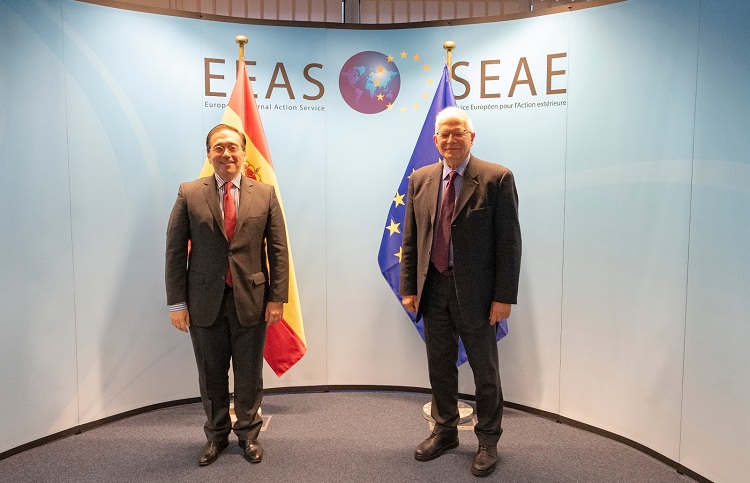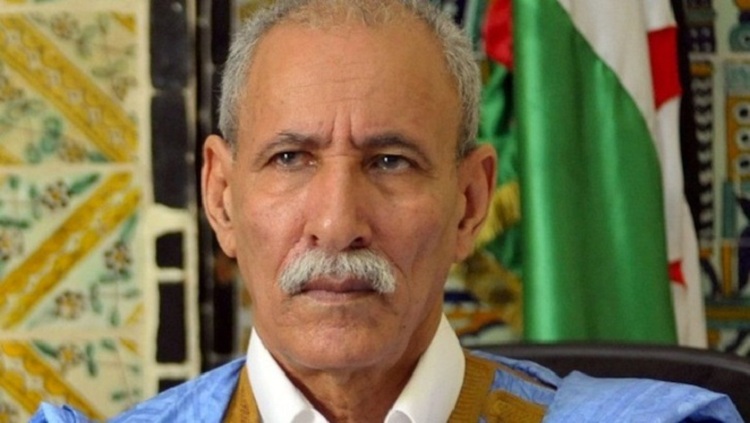Eduardo González
The head of the Spanish diplomacy, José Manuel Albares, will participate today in Luxembourg in the EU Foreign Affairs Council, where the fifth package of sanctions against Vladimir Putin’s regime, including the embargo on Russian coal, will be adopted.
During the meeting, the foreign ministers will discuss recent developments and current issues, such as the situation in Mali, Libya and Yemen. They will also discuss the latest developments regarding Russian aggression against Ukraine and hold an exchange of views on the Global Gateway, the new European strategy to boost smart, clean and secure connections in the digital, energy and transport sectors, and to strengthen health, education and research systems worldwide. Over lunch, participants will hold an informal discussion with Norwegian Foreign Minister Anniken Huitfeldt and Icelandic Foreign Minister Thórdís Kolbrún Reykfjörd Gylfadóttir.
Last Thursday, EU High Representative for Foreign Affairs and Security Policy Josep Borrell announced upon his arrival at the NATO ministerial meeting the approval of a fifth package of sanctions to strengthen pressure on the Russian government and economy and to limit the Kremlin’s resources for aggression. These sanctions were approved last Friday by the ambassadors and will be ratified today, by written procedure, at the Foreign Affairs Council in Luxembourg.
Specifically, the fifth round of sanctions, as reported by Borrell this past Friday, includes a ban on the purchase, import or transfer of coal and other solid fossil fuels to the EU if they originate in Russia or are exported from Russia, starting in August 2022 (coal imports into the EU currently amount to €8 billion per year). Regarding the possible oil embargo, the High Representative specified on Thursday that, for the time being, only coal trade has been included, but the possible veto on Russian oil “will be discussed on Monday at the Foreign Affairs Council meeting of ministers” and therefore “sooner or later, hopefully sooner, it will happen”.
Apart from that, the EU will ban access to EU ports for ships registered under the Russian flag (with exceptions for agricultural and food products, humanitarian aid and energy), prevent the transit within the Union of any Russian or Belarusian road transport company (except for the traffic of pharmaceutical, medical, agricultural and food products and transport for humanitarian purposes) and ban the export of jet fuel, high-end computer and electronic goods or products such as timber, cement, fertilizers, seafood and liquor.
In addition, the Council will also sanction companies whose products or technology played a role in the invasion, leading oligarchs and businessmen, senior Kremlin officials, proponents of disinformation and manipulation of information, and family members of individuals already sanctioned, in order to ensure that EU sanctions are not circumvented. In addition, a total ban on transactions is imposed on four key Russian banks that account for 23% of the market share in the country’s banking sector. After being removed from SWIFTed, these banks will now be subject to an asset freeze, thus being completely cut off from EU markets.
On the other hand, Borrell announced last Friday, during his visit to Kiev together with the President of the European Commission, Ursula von der Leyen, to meet with the Ukrainian President, Volodimir Zelenski, that the EU will allocate 500 million euros more to supply arms to Ukraine, thus raising the European Peace Facility funds earmarked for this purpose to 1.5 billion. The High Representative also announced the return of European diplomats to Kiev following the improvement of the situation in the Ukrainian capital.







